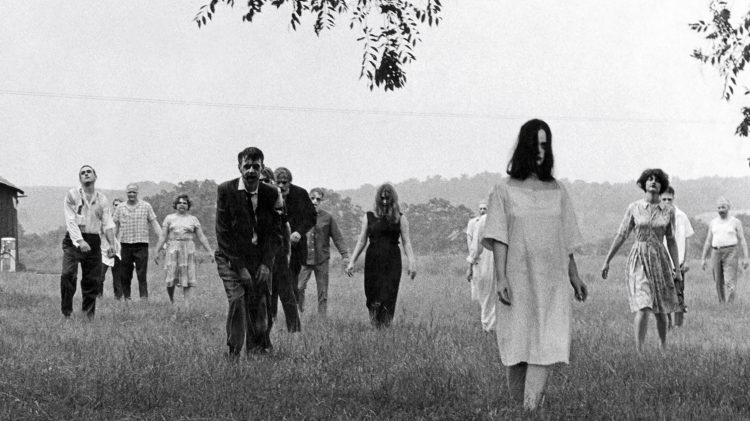Descartes goes to Hollywood
5 May 2021|Paul Skokowski
- Research

If René Descartes were alive today, what would he make of the TV series Westworld? Westworld depicts a Wild West theme park, with androids like Dolores Abernathy as main characters. I believe Descartes would view Westworld as an opportunity to illustrate his view of what an android experiences. In a word, this would be: nothing.
For Descartes, humans have a soul, or mind. The mind is nonphysical, but it controls the human body, which is physical. Only humans have minds, according to Descartes. Automatons such as Dolores, as purely physical machines, lack minds altogether.
Descartes viewed mind and body as distinct substances. The mind is a nonphysical substance; the body is a physical substance. Since Dolores has no mind, she cannot experience anything nonphysical, anything mental. Why? As a machine, she is restricted to being part of the physical world. She cannot have any nonphysical interactions. This includes experiences, which, as Descartes might say in the 21st century, are mental as anything.
Though Dolores isn’t human according to Descartes, she might qualify to be a zombie. Philosophical zombies are creatures that appear to be just like humans, except they experience nothing whatsoever. They are exact physical molecule-for-molecule duplicates of humans on Earth, perhaps existing elsewhere in the universe. What makes these philosophical creatures different from humans on Earth is that despite being our exact physical duplicates, they are claimed to lack consciousness altogether. Of course, they interact with each other and their world exactly as we do. They, too, seem to appreciate a good opera and produce flowery descriptions of their Zinfandels, and even say ”Ouch!” after touching a hot pan. But zombies lack conscious experience, and so their world is experientially dark – with no sounds, tastes, or pains – despite being our physical duplicates. Under this view, Dolores’ world is dark, and completely devoid of sensory experiences: what philosophers like to call qualia. Zombies simply respond to events in a purely physical way, with no mental life accompanying these responses, and no sensory experiences like seeing colors, tasting flavors, or feeling pains.

It turns out that the original Hollywood zombies – and here I’m thinking of those terrific zombies in George Romero’s Night of the Living Dead – don’t really count as zombies in the philosophical sense. The reason is that these zombies are irresistibly attracted to human brains, as is evidenced by their lovable exclamation of “Brains!” when they ‘see’ a human nearby. It appears that the taste of human brains is what they crave when they utter “Brains!” in the presence of (still alive) humans. And we can only presume these zombies enjoy their dining experience.
Zombie arguments are conceivability arguments. They go something like this. It’s conceivable that there are creatures exactly like humans, down to our molecular and atomic composition, and yet lack consciousness. If this is conceivable, then materialism – the claim that all mental phenomena are accounted for by physical theory alone – must be false. It must be false, since giving a purely physical account of humans does not seem to account for conscious experience, and in particular, qualia. As purely mental stuff, qualia must be left out of any physical accounts of the world, according to this view.
If Dolores is indeed a zombie, then it turns out that Westworld presents us with a second kind of Hollywood zombie that differs from philosophical zombies. The reason is that Dolores is categorically not a physical duplicate of any human being whatsoever. She lacks a carbon-based brain, fed by a bloodstream of oxygen-carrying red corpuscles. She lacks calcium-based bones and a human-like cellular structure composing her tissues. Instead, her ‘brain’ is really a CPU, and her tissues and internal parts are non-carbon based. So Dolores, and her android colleagues are not molecule-for-molecule duplicates of any existing human beings. And therefore Dolores is not a philosophical zombie.

Despite this revelation, Dolores might have more of a claim to being at least some kind of zombie than her predecessor Hollywood zombies do. The zombies in Night of the Living Dead appear to have gustatory experiences. And the Cartesian view might allow this as these creatures actually have human bodies – a little decomposed, without a doubt, but still human flesh and bone! Since these creatures have human bodies, there is nothing contradictory in their also having some human mental attributes, such as taste qualia, for example. Perhaps this seems a stretch, but the dictates of the Cartesian view are consistent with this interpretation.
But Dolores can never fit with this Cartesian view. As an automaton she cannot have a mind. Without a mind, she cannot experience anything. Dolores is a zombie. Not a philosophical zombie, since she is not a molecule-for-molecule duplicate of a human being, but a kind of zombie nonetheless: a being who lacks qualia altogether.
This blog is a very short riff on a chapter that is coming out later in a collection. The chapter is entitled “The Philosophy of Westworld”, and is in Cybermedia: Science, Sound, and Vision, edited by Carol Vernallis, Holly Rogers, Jonathan Leal, and Selmin Kara, Bloomsbury Press, 2021.
Category: Research
Author

Paul
Skokowski
What possible connection could there be between the philosopher René Descartes, androids, zombies, and Hollywood? More than you might have originally thought.